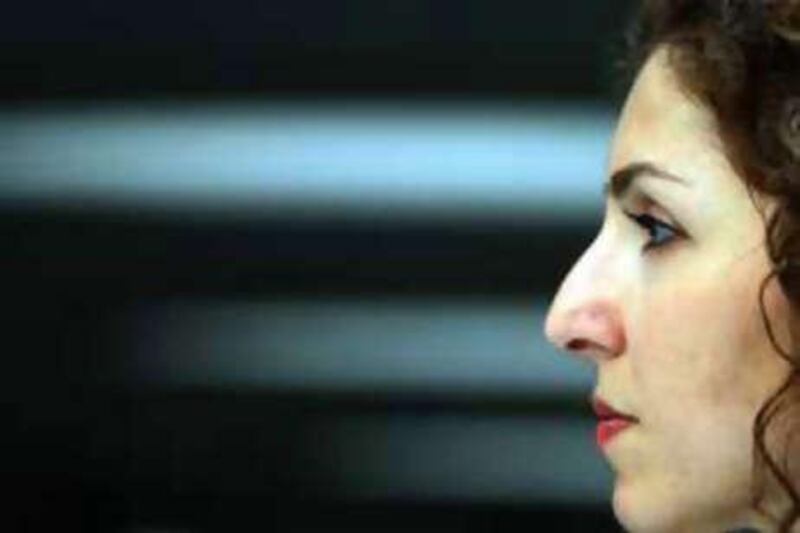ABU DHABI // With wealthy UAE residents potentially mulling over becoming space tourists, Anousheh Ansari, the world's first female one, has spoken about the experience and why more people from the GCC should follow in her footsteps. "The image you get when you see Earth from space is something that stays with you for the rest of your life," Mrs Ansari said in Abu Dhabi of her September 2006 journey.
"It becomes part of your life, and you view everything else in your life differently. It is an inspirational feeling. You just can't compare it to anything else." Mrs Ansari, who gave a talk at Dubai Women's College last week, said she feels a duty to encourage others to follow her into space. "I am always honoured and encouraged, especially with young people, when they tell me I am a role model," she said.
"I feel a great sense of responsibility more than anything, and part of the reason I am here in the UAE is because I feel a sense of duty to share my story with people, to show them the possibilities and opportunities that lie ahead for them if they choose to go after them. "I view that with great pride. I don't think I am special - anybody can do it. Of course, you need to have a certain physical strength and capability, but you do not need to be superhuman or a super athlete to do it.
"If you have the passion for it, there should be no barriers. The finances are the biggest hurdle, but through competition and expansion of companies involved in this industry, it will become cheaper and more accessible." In 2010, more GCC residents will follow Mrs Ansari into space, with the maiden charter flight on Virgin Galactic sold to a Dubai company, and Virgin's Dubai office reporting huge interest in space flight from Iranians.
Mrs Ansari, 42, said: "There is something in the water in Iran and the region. There is a great interest in space, going back historically many, many years. "Some of the first astronomers came from the region, and some of the first accurate measurements for calendars were made there. It is a part of our culture." The International Space Station, where Mrs Ansari spent 10 days, is a long way from her childhood home in Tehran. She moved to the US in 1984 and made her name as a successful businesswoman. While in space, she conducted experiments for the European Space Agency, and learnt Russian to be able to communicate with the cosmonauts.
After graduating from George Washington University in Washington DC and working in the telecommunications industry, she made millions setting up a company with her husband Hamid. Mrs Ansari said governments must co-operate on joint space programmes to bring down costs and share expertise. She supported calls for a pan-Arab space agency at the Global Space Technology Forum in Abu Dhabi last week. "Space is absolutely important for the human race and its future. We are growing in population and resources are constrained, so the only way forward for our species to survive in the universe is to make access to space easier and more cost effective.
"The two biggest barriers are the cost of launch and the exchange of technology. I didn't see any borders up there so I don't see why we should start drawing sky maps. I hope there can be more collaboration with different space industries, so it is not used for military purposes. "I am a big proponent of global collaboration, not just regional. We have India and China in a race to space; we have years of experience in the European Space Agency and with Nasa.
"I think if you had a better collaborative effort between these countries, we can have reusable launch vehicles and two or three different designs people are working on instead of only one that may not succeed. "I always say we should send our world leaders to space so they can see it in a new light." As well as being only the fourth space tourist, Mrs Ansari has also played a hands-on role in the next step of space travel. Her company offered a US$10 million (Dh36.7m) prize to anyone who could build and launch a spaceship 100km into the atmosphere, and the successful design is being adapted into the ship to be used by Virgin Galactic.
Flights on Virgin Galactic, which are to last only 2½ hours, will initially cost about US$200,000, although the price is expected to decrease as the number of flights increases from one a week. The spaceship will fly, attached to a mother ship, up to 50,000 feet before detaching and climbing to 360,000 feet - or 110km - a journey that will take 90 seconds. Passengers, despite travelling at 2,500mph, will be able to see 1,000 miles in all directions.
@Email:rhughes@thenational.ae






